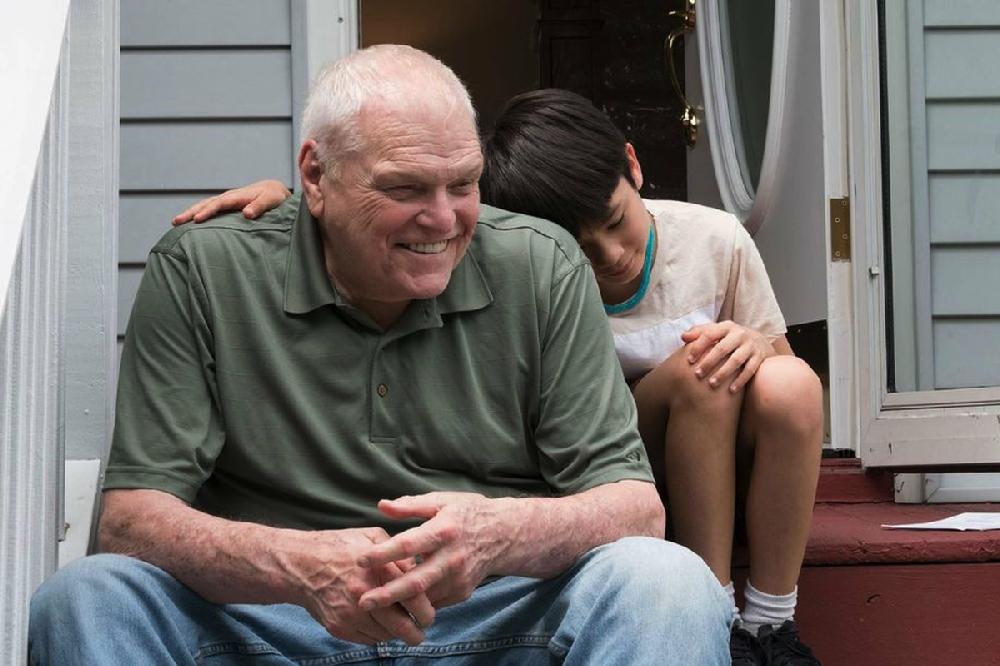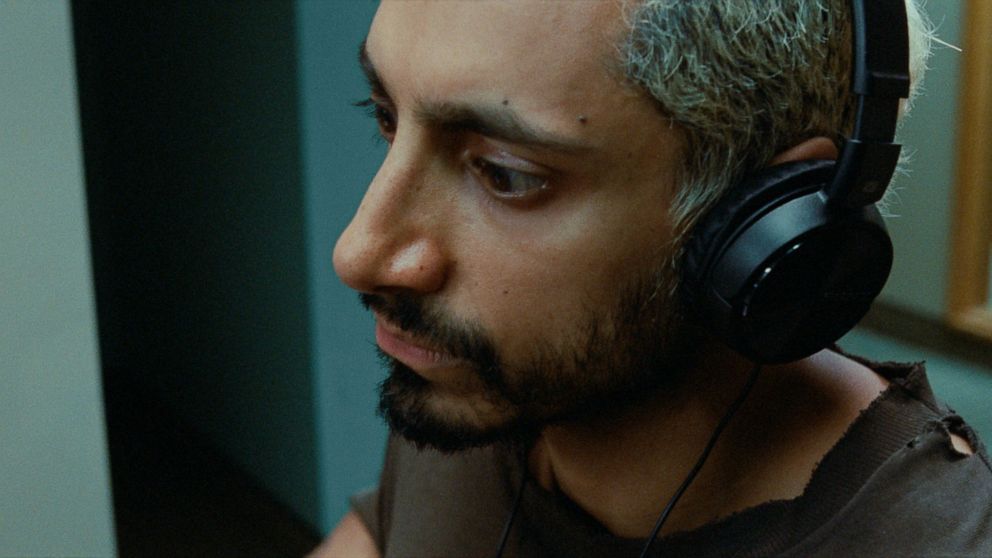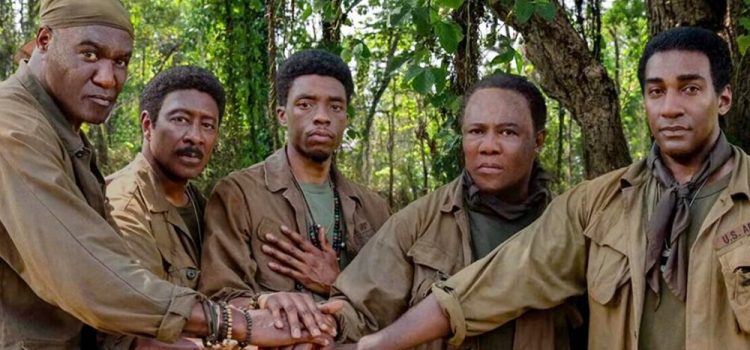By Alex McPherson
2020 was a good year for movies, despite everything! Here are my top 10 films of the year, with 11 honorable mentions. There’s still some movies I need to watch, of course, including “Soul” and “Palm Springs.”
- “Red Penguins”
Director Gabe Polsky’s documentary, “Red Penguins,” focuses on an American-Russian partnership that quickly spirals out of control. Shortly after the fall of the Soviet Union, two managers of the Pittsburgh Penguins and an eccentric marketing executive try to revive Russia’s national hockey team in cooperation with the team’s general managers. The tactics they deploy are, suffice to say, quite out-there. Live bears serving beer on the ice? Huh?
Despite garnering international attention, problems soon arise. Poor decision-making among all parties creates a situation with life-and-death consequences. Featuring energetic editing that constantly keeps viewers on their toes, and interviewees who illuminate all sides of the story, “Red Penguins” is alternately hilarious and horrifying — a cautionary tale told in a harrowing fashion. More people need to watch this film.
- “Never Rarely Sometimes Always”
Few films this year provide the raw emotional impact of director Eliza Hittman’s “Never Rarely Sometimes Always.” The film centers around a young woman in rural Pennsylvania named Autumn (Sidney Flanagan) who contends with an unintended pregnancy. She wants to get an abortion, but the state requires that she gets permission beforehand from her parents, with whom she has an uneasy relationship. This leads her to travel to New York City with her cousin, Skylar (Talia Ryder), to seek out the procedure. Confronting not only the faults of America’s healthcare system but also the casual injustices faced by women on a regular basis, Hittman’s film is bleak, intense, yet absolutely essential viewing, with a suitably powerful ending.
- “Da 5 Bloods”
Director Spike Lee’s latest effort, “Da 5 Bloods,” is an ambitious exploration of war, trauma, friendship, and family. A group of four Black Vietnam War veterans return to Vietnam to locate the remains of their fallen squad leader, Stormin Norman (soulfully played by Chadwick Boseman), and find the treasure they hid together all those years ago. What follows is a timely, genre-blurring creation that only Lee could provide. Featuring excellent performances — especially by Delroy Lindo, playing a complex, mentally tormented individual — one of year’s finest scores, and a narrative that twists and turns unpredictably, Lee’s film is mesmerizing and packed with meaning.
- “Another Round”
“Another Round,” the latest effort from Danish film director Thomas Vinterberg, is a compelling and darkly comedic ode to appreciating the roller coaster of life. Martin, a depressed high school history teacher, takes part in an experiment along with three other colleagues to see what happens if they maintain a blood alcohol content of 0.05, which supposedly provides enhanced creativity and social skills. Unsurprisingly, even though the experiment begins with promising results, the four gentlemen soon get in way over their heads. At some points disturbing and heartbreaking, “Another Round” also contains moments of levity — capturing these characters’ struggles and triumphs through superb acting and dialogue. And that ending scene, oh boy. I could rewatch the film’s finale on repeat for an entire day and not get bored.

- “Borat Subsequent Moviefilm”
Borat’s second feature-length outing feels like a slap-in-the-face to Trumpers — always a positive in my book — and has real heart beneath the outrageousness on display. Borat Sagdiev (Sacha Baron Cohen), a fictional journalist from Kazakhstan, finds himself on a mission to deliver his daughter, Tutar (Maria Bakalova), to Vice President Pence, in order to strengthen the nation’s standing with the United States after the fallout from the original film. Containing all the shocking, laugh-out-loud sequences that one expects from a “Borat” film — including an infamous interaction with the leaky vampire himself, Rudy Giuliani — the sequel is also about Borat’s relationship with Tutar, and Tutar’s journey from ignorance to enlightenment about how the world really works and her own ability to make an impact. All in all, “Borat Subsequent Moviefilm” is “Very Nice!”

- “Driveways”
A gentle, beautifully acted story, director Andrew Ahn’s “Driveways” is a perfect film to start the New Year with. Ahn shows how simple acts of kindness can have far-reaching rippling effects, and how friendships can form between people with starkly different life experiences. The heart of the film lies in the friendship between eight-year-old Cody (Lucas Jaye) and a widowed war veteran named Del, played by the late Brian Dennehy, who lives next door. Although the film’s plot remains predictable, Ahn’s film truly shines through its refreshingly low-key, nuanced approach to the material — cementing itself as one of 2020’s absolute gems. We can all learn something from “Driveways.”

- “Sound of Metal”
Director Darius Marder’s “Sound of Metal” is a hard-hitting character study that makes use of cinema’s immersive potential. When a punk-metal drummer named Ruben (Riz Ahmed) starts to lose his hearing, his life is upended. He must reckon with his frustration, heartbreak, and feelings of hopelessness for his future. Though at times hard to watch, “Sound of Metal” is oh so moving, depicting Ruben’s journey in an uncompromising fashion. The film’s powerhouse performances and realistic narrative, combined with sound design that simulates the effects of Ruben’s hearing loss, creates a film whose visceral qualities are matched by thought-provoking, deeply human themes.
- “First Cow”
Set in 1820s Oregon, “First Cow” follows two travelers — a soft-spoken, introspective chef named Otis “Cookie” Figowitz (John Magaro) and King Lu (Orion Lee), a Chinese immigrant on the run from vengeful Russians — as they form a friendship and attempt to make a living in unforgiving conditions. Their business involves stealing milk from the only cow in the region, owned by the repugnant Chief Factor (Toby Jones), and baking popular, supremely delicious biscuits. Director Kelly Reichardt builds a quietly suspenseful tale exploring the American Dream, with three-dimensional characters, stunning cinematography, and an impeccable atmosphere that transports viewers to the time period. The film’s slower, more deliberate pace might turn off impatient viewers, but for everyone else, “First Cow” is first-rate.
- “Bacurau”
Impossible to pin down to a single genre, “Bacurau” is one of 2020’s most brutally satisfying films. Set in a fictional Brazillian village of the same name, the film depicts a tight-knit community working together to combat a threat that seeks to literally wipe them off the map. This crazy film works on multiple levels — as an allegory for struggles within contemporary Brazil, and as an emotional roller coaster with sympathetic heroes, sadistic villains, a cathartic conclusion, and revolutionary ideals. I’ve watched “Bacurau” four times and can’t wait to rewatch it again. It’s definitely not for the faint of heart, but any and all cinephiles should appreciate the film’s striking vision.
- “Small Axe Anthology”
Yes, I realize that some people might classify director Steve McQueen’s “Small Axe Anthology” as television; however, I don’t care. This collection of five films is brilliant from start to finish, depicting the experiences of some West Indian immigrants in London during the 1960s and 1970s — including the 1971 trial of the Mangrove Nine and inequality within the schooling system. The films are unflinching, empathetic, and expertly crafted — depicting their subjects without reducing or simplifying their struggles for pure entertainment value. “Small Axe” encourages viewers to reflect on how far we’ve come, how much has worsened or stayed the same, and the heights we could achieve in terms of racial equality. Full of moments of joy, grief, struggle, and human connection, these films are achingly resonant, and they shouldn’t be missed.
Honorable Mentions: “12 Hour Shift,” “American Utopia,” “Bad Education,” “Beasts Clawing at Straws,” “Bloody Nose, Empty Pockets,” “Dick Johnson is Dead,” “I’m Thinking of Ending Things,” “Ma Rainey’s Black Bottom,” “My Dinner with Werner,” “The-Forty-Year-Old Version,” “The Vast of Night”

Lynn (Zipfel) Venhaus has had a continuous byline in St. Louis metro region publications since 1978. She writes features and news for Belleville News-Democrat and contributes to St. Louis magazine and other publications.
She is a Rotten Tomatoes-approved film critic, currently reviews films for Webster-Kirkwood Times and KTRS Radio, covers entertainment for PopLifeSTL.com and co-hosts podcast PopLifeSTL.com…Presents.
She is a member of Critics Choice Association, where she serves on the women’s and marketing committees; Alliance of Women Film Journalists; and on the board of the St. Louis Film Critics Association. She is a founding and board member of the St. Louis Theater Circle.
She is retired from teaching journalism/media as an adjunct college instructor.


